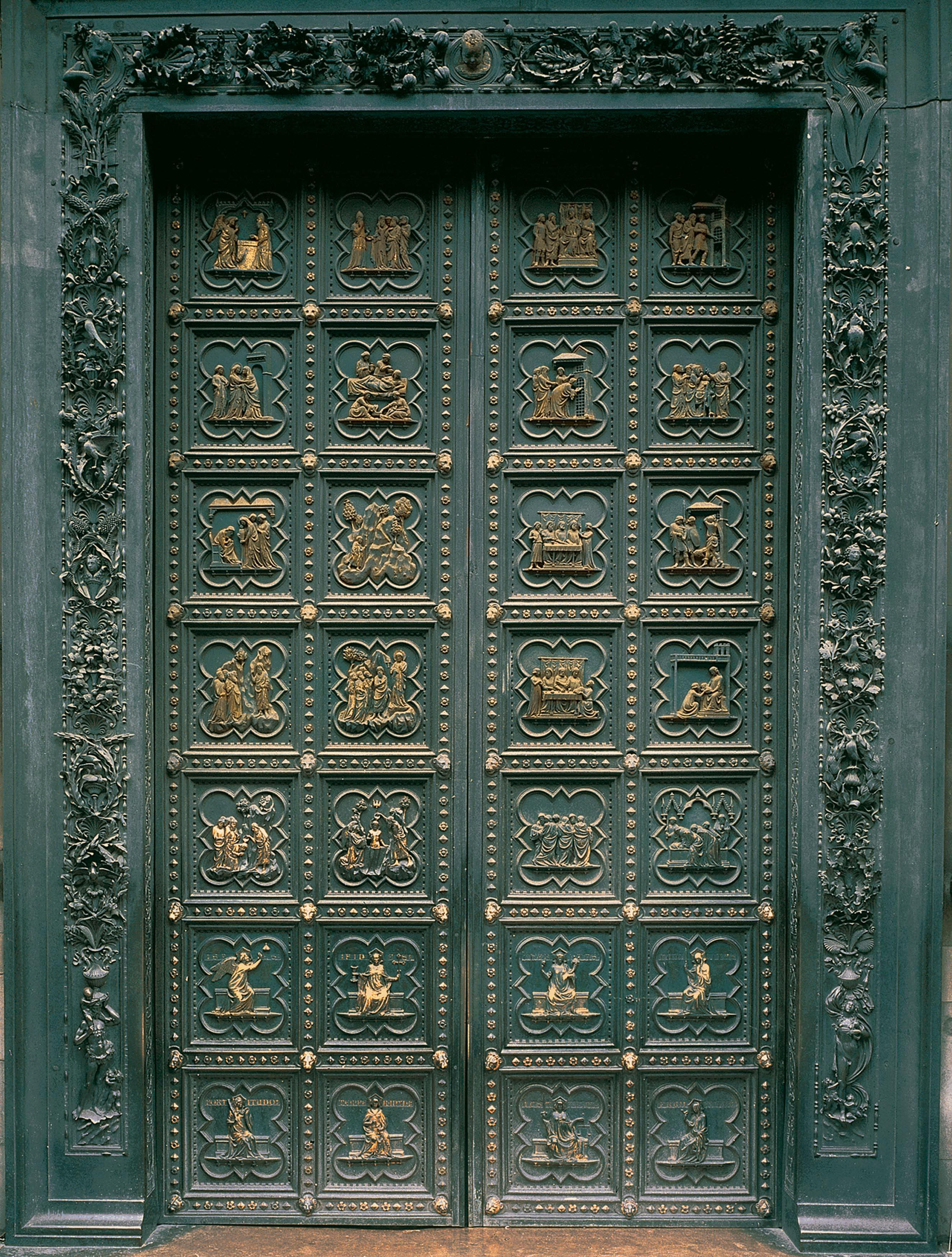Tuscany : San Giovanni South Doors (Life of St John the Baptist)
The Arte della Calimala, one of the most prosperous guilds in Florence, the epicenter of Italy, commissioned a set of bronze doors in 1330 (completed in 1336) by Andrea Pisano. Now located at the southern entrance of the Baptistery, the doors represent the life of Saint John the Baptist, the patron Saint of Florence. The doors symbolized pride the Florentines had for their city and a prosperous, glorious future that would rival the bronze doors in Siena and Pisa. The doors were used as religious propaganda to show every citizen how to live a faithful, devoted Christian life. Saint John was the example that everyone should follow to ensure less time in purgatory and a faster transition into heaven. One of the most interesting aspects of the doors are the eight virtues at the bottom on the doors. Normally, there are only seven virtues, but the eighth virtue, humility, was added to create more symmetrical doors. Humility is the absence of pride, and Florentines had an enormous amount of pride. We are taught to think pride is a good thing, but pride functions only when comparing others to yourself. However, once the doors were completed, the city was ravaged by the Plague and other unfortunate events, marking this the last of expensive commissioned art until the early fifteenth century.
Humility is one of the more rare virtues in religious and secular allegory, and was added to the doors to keep aesthetic balance. Normally, Humility is shown with the vice of Pride. Her bent head suggests that the humbler one is, the higher the spirit rises. When the ornate, bronze doors were installed in 1336, the members of the Calimala Guild and the citizens of Florence were proud. Florence was a city on the rise and urbanization was experienced by all Italian cities. In this time, Florence’s population doubled. More importantly, Florence saw an explosion in international trade and innovations in finance. A new class of bankers and merchants replaced the old noble families as the center of power. These sudden profits and sense of pride were believed to contribute to the plague. They believed that God was highly offended by the sin of pride and the plague was a result of that sin. Over one third of Florence’s population was ravaged by the plague and no one knew why. Christianity dominated the worldview, especially in Europe. The power of the Church was an absolute; it was a government, religion and mindset that were deeply rooted in its people. The people’s faith and devotion to the Church influenced their interpretation of the plague. The more people gave themselves to the church; it was thought that they would not get the plague. The more they paid the church; they believed the lesser chance they would get the plague. Everything the Florentines lived for was rooted in pride for their city and faith.

